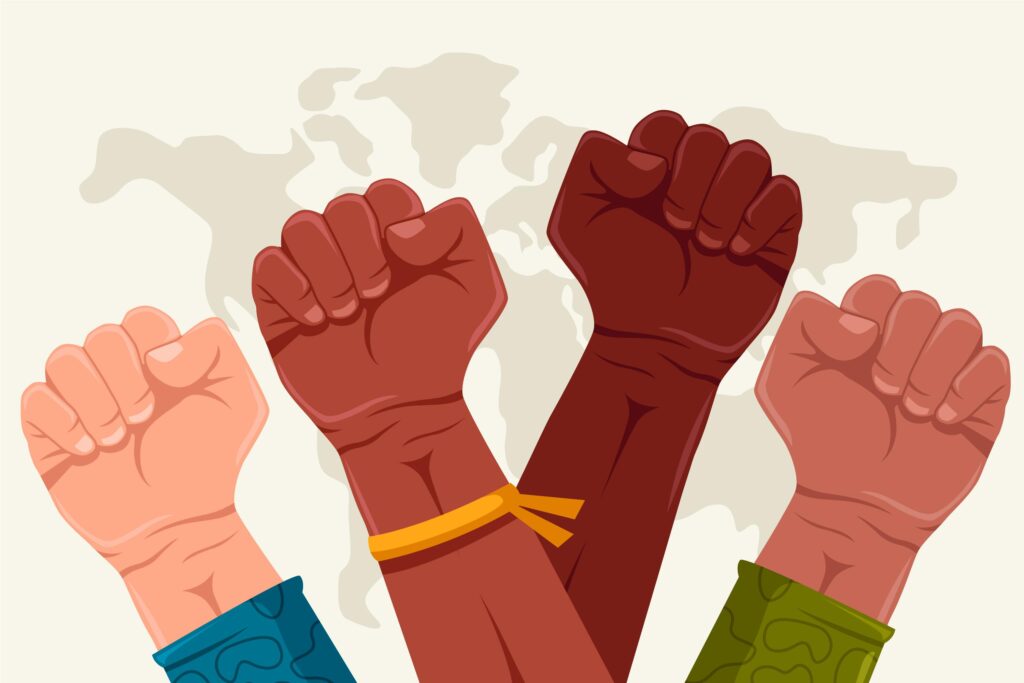It is imperative in a country of such diversity and democracy to ensure the dignity, freedom, and rights of one person. Human Rights Lawyers play an important role in ensuring that justice is available to everyone, those marginalized and oppressed, silent. People working in these jurisdictions strive to protect the citizens’ constitutional rights and the fair treatment of others with dignity and respect.
In this article, we discuss the jobs of human rights lawyers in India, and how they assist citizens in obtaining justice, and if your rights have been violated, how you can get the best human rights lawyer in India.
Who Are Human Rights Lawyers?
Human rights lawyers are legal professionals who are fit to defend and promote human rights. They appear in court on behalf of their clients when their fundamental rights have been violated by the state, law enforcement agencies, employers, or private individuals. These lawyers cooperate with abusers, discriminators, and injustice victims to get justice through courts, human rights commissions, and other international organizations.
Indian human rights lawyers have a greater role outside the courtrooms. They also practice advocating, legal awareness, policy reforms, and social activism. Their work contributes to creating a society where no one is less valued or better served.
Constitutional Framework and Legal Support
One of the most progressive constitutions in the world on human rights is India’s Constitution. It provides for several Fundamental Rights under Articles 14 to 32, among which are:
- Right to Equality
- Right to Freedom
- Right against Exploitation
- Right to Freedom of Religion
- Cultural and Educational Rights
- Right to Constitutional Remedies
Human rights Lawyers mainly enforce these rights. These lawsmen can assist any citizen to file their case in the court in case their rights are violated or compile petitions to the National or State Human Rights Commissions.
Role of Human Rights Lawyers in India
There is a vast and powerful role of human rights lawyers in India’s history. They deal with a large number of cases, such as:
- Police brutality and custodial violence
- Child labor and bonded labor
- Caste-based and religious discrimination
- Gender-based violence and sexual harassment
- Right to education, health, and shelter
- Freedom of speech and the press
- Refugee rights and migrant issues
These lawyers usually file Public Interest Litigations (PILs) representing the affected community or NGOs seeking to raise larger human rights issues.
For instance, in some landmark cases to date, human rights lawyers have struggled for the cause of manual scavengers, LGBTQ+ communities, tribal groups, and victims of state excesses.
How to File a Human Rights Complaint in India
If you think that your rights were violated, you should be informed about filing a human rights complaint in India. Here’s a simple process:
- Determine the violation – Know which right humans violated (for example, unlawful detention, discrimination, abuse, etc)
- Collect evidence – acquire material (or copies) of relevant documents, medical records, witness statements, or photographs.
- Seek Out a Human Rights Lawyer – The best human rights lawyer in India will explain the legal process to you.
- Commissions on Human Rights – Submit your complaint to:
- National Human Rights Commission (NHRC)
- State Human Rights Commissions (SHRC)
- Legal proceedings – in case you need to file the petition in the High Court or the Supreme Court to enforce your rights, your lawyer will do so.
In India, a lot of human rights legal services provide things such as free legal aid or pro bono representation to poor people.
Famous Cases on Human Rights in India
Among the greatest changes in Indian society have been effected through the hands of human rights lawyers. Here are a few examples of that note:
- Nirbhaya case (2012)- Advocates campaigned for the justice of raper victim and this gave way to tougher anti-raper law.
- Case Section 377 (2018) – Human rights lawyers had homosexuality outlawed in India.
- Cases on Manual Scavenging – Petitions lodged seeking the abolishment of manual scavenging work and the rehabilitation of exposed families.
These examples exhibit the practical impact of what human rights lawyers do in India.
Qualities of the Best Human Rights Lawyer in India
It can make a huge difference in the result of a case for finding the best human rights lawyer in India. Look for these qualities:
- Experience in handling human rights cases
- Rich knowledge of constitutional and international law
- Social justice and equality commitment.
- The good communication and empathy with the clients.
- A history of PILs or landmark judgments.
You may begin an online search by searching legal directories, NGO referrals, or online platform reviews and expertise.
How to Choose the Right Lawyer for Your Case
When you’re discussing a violation of human rights, it’s crucial to select the proper lawyer. Here’s where you can find one:
- Search for “best human rights lawyer in India” online and read their profile.
- See whether they have had cases before like this one.
- \How do they approach legal strategy, and what is their percentage of past wins?
- Make sure they respond and can explain the legal process straightforward manner.
Remember, however, in such sensitive cases this trust and openness are crucial.
Why Human Rights Lawyers Matter
The importance of human rights lawyers in India is higher now than it has ever been. With the country facing the challenges of inequality, gender violence, caste bias, and problems of freedom of speech, these legal defenders help to make sure that justice is rea,l not just a dream.
They act as watchdogs against state excesses and protect the needy community, and participate in influencing in formulating the laws that will represent a humane society. With them, however, many injustices go unseen or uncoupled.
Challenges Faced by Human Rights Lawyers
Human rights lawyers who do this work so necessary to developing and maintaining human rights around the world, not infrequently suffer severe difficulties:
- Risks of harassment or threats by the hand of political or powerful forces
- Low/no remuneration for public interest work done.
- Social stigma is particularly prevalent in cases where there are controversial issues.
- Court process delays and clogged cases
Nevertheless, quite a lot keep working with dedication and courage, and it is all due to their love for justice and equality.
Conclusion
Human Rights Lawyers in India are an indispensable power in safeguarding all dignity, justice, and elementary rights. They close the gap between justice and law to make room for every citizen, regardless of background, to enjoy a life worth living, with respect and freedom.
Whether it is discrimination or an abuse in the form of denial of a basic right, knowing how to file a human rights complaint in India and finding the best human rights lawyer in India will help you to fight back by law.
FAQs for Human Rights Lawyers
- 1. Who are Human Rights Lawyers in India?
Human Rights Lawyers in India are legal professionals who specialize in protecting the fundamental rights and freedoms of individuals, often advocating for marginalized communities.
- 2. What is the role of Human Rights Lawyers in India?
The role of human rights lawyers in India includes representing victims of rights violations, filing public interest litigations, and promoting justice through legal and constitutional means.
- 3. How to file a human rights complaint in India?
To know how to file a human rights complaint in India, gather evidence, contact a lawyer, and file your case with the National or State Human Rights Commission.
- 4. How do I find the best Human Rights Lawyer in India?
Search online directories, check case histories, or ask NGOs to recommend the best human rights lawyer in India based on experience and success rate.
- 5. Can Human Rights Lawyers help in international cases?
Yes, some Human Rights Lawyers also act as international lawyers, handling cross-border human rights cases through global legal institutions.




Pingback: Criminal Law in India: Your Legal Rights Explained
Pingback: International Human Rights Law: UN Compliance Explained